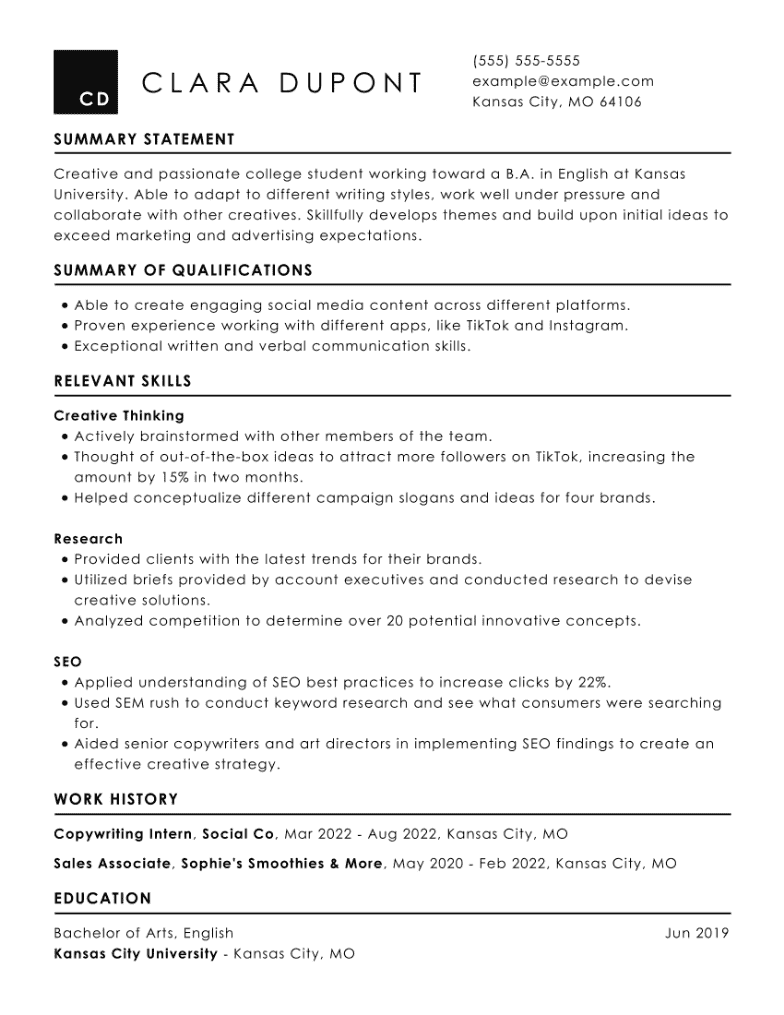Header and contact information
Your CV header should contain crucial information such as your full name, your phone number, LinkedIn, and additional contact information like portfolio links. Make sure to select a header that is easy to read and isn’t too boxy or distracting.
Professional summary or career objective
Your professional summary or career objective statement may only be a few sentences long, but it’s key to grabbing employers’ attention. A summary (which is preferred by most job seekers with experience) is an overview of your best skills, work achievements and qualifications that is specifically tailored to the company.
While an objective is used to tell a recruiter what your career goals are and your reasoning for applying to the role, its focus is on your career path.
An example of an objective statement for a college student is:
Student at XYZ University with experience managing marketing for social media accounts seeking an internship in social media marketing with XYZ Company. PRSSA scholarship award winner with strong technical skills and work ethic.
A summary statement would look like:
Highly motivated accounting intern offering working knowledge of accounts receivable, accounts payable and financial reporting. Self-starter, with adaptability to a fast-paced environment with extremely aggressive deadlines.
Showcase key skills from the job posting
A great CV will be tailored to each internship with keywords from the job description. You can pick out relevant skills, tasks and responsibilities to match up with your own experiences and then make sure to place these crucial skills in your bulleted skills list, summary, and a separate skills section if desired.
The skills section of your CV is a great place to show recruiters that even though you may be a student or recent graduate, you have what it takes to make it. This is your opportunity to show competencies in both soft and hard skills like this:
Highlight interpersonal skills such as:
- Communication skills
- Teamwork/collaboration
- Time management
- Critical thinking
- Adaptability
And technical skills such as:
- Research
- Analytical skills
- Microsoft Office programmes (e.g., Excel)
- Industry-specific programmes acquired at school
Work experience section
This may not be the key section for your internship CV, but you can still give examples with quantifying achievements, or highlighting relevant accomplishments and specific responsibilities that match what the new job wants. Here’s what that could look like: Conducted market research and analysed marketing surveys to help management figure out how to improve sales by 15% by the end of the second quarter.
Education
Because you are still in school or university when applying for an internship, your CV education section will look different than someone with years of experience. In your education section list your top academic achievements, your grades if applicable or required, and your college diploma if relevant.
Additional sections
In addition to the basic CV sections above it is important for an internship to be as specific as possible. So if it is relevant to the specific application, you may want to include:
- Relevant coursework
- Degree or field of study, e.g., Computer Science
- Languages
- Certifications
- Awards
- Volunteer activities






